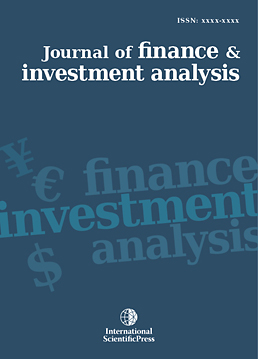Journal of Finance and Investment Analysis
Incidental Negative Life Events and the Disposition Effect at the Individual Level
-
 [ Download ]
[ Download ]
- Times downloaded: 8902
Abstract
In this study, we explore the role of individual exposure to negative life events on the disposition effect (DE) – i.e., the tendency of traders in financial markets to sell assets at gain faster than those at a loss. We hypothesize that individual exposure to negative life events may influence the disposition effect through different behavioral mechanisms, namely trading volume reduction, better information processing, and emotions. In three studies, we combine a quasi-natural experiment by considering the disposition effect, as measured with individual financial data from a trading exercise, both before and during the COVID-19 pandemic and across individuals exposed to a different extent to COVID-19. We also manipulated and elicited the emergence of specific emotions from the exposure to COVID-19 and tested whether such emotions influence the DE. Our results show that individual exposure to negative life events will reduce the disposition effect, mainly via better information processing emotion. Negative life events further reduce the DE when anger is elicited in the individual decision-maker.
JEL classification numbers: G11, G41.
Keywords: Disposition effect, Negative life events, Experiment.
